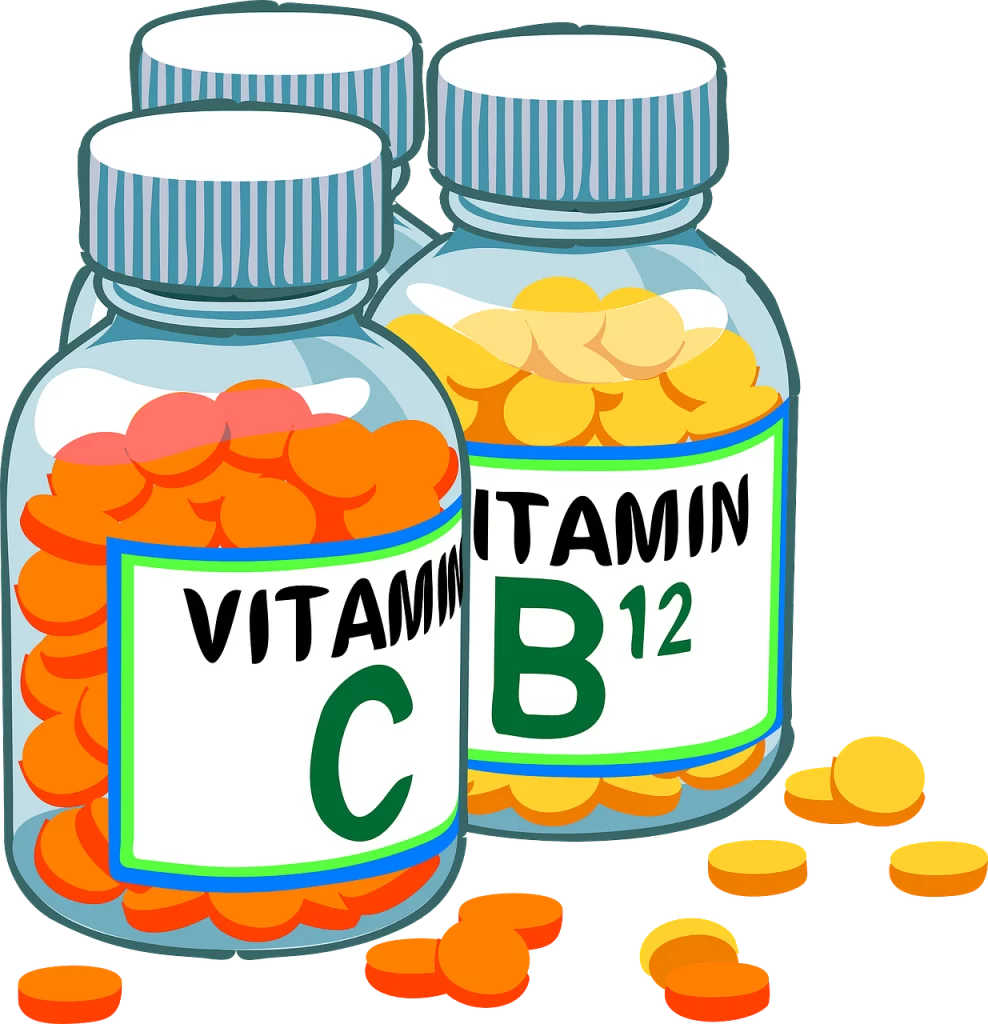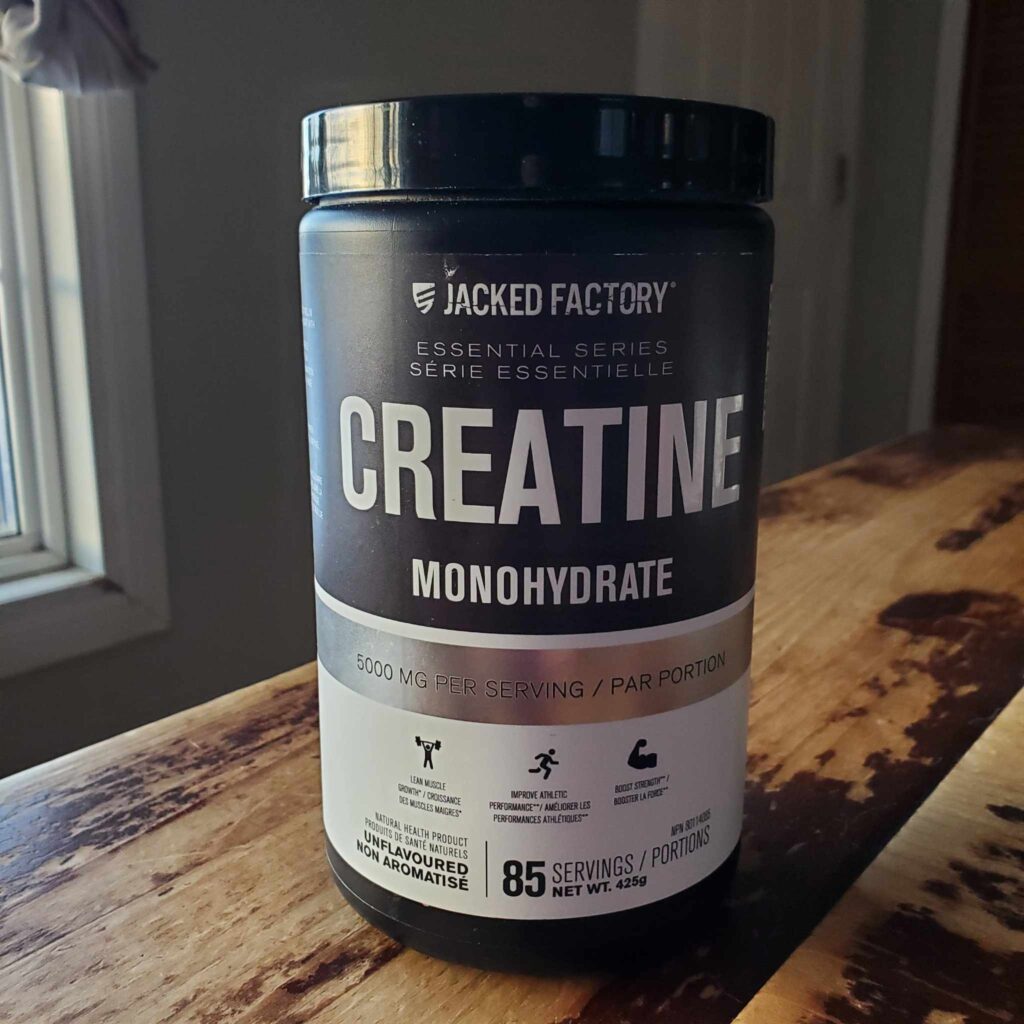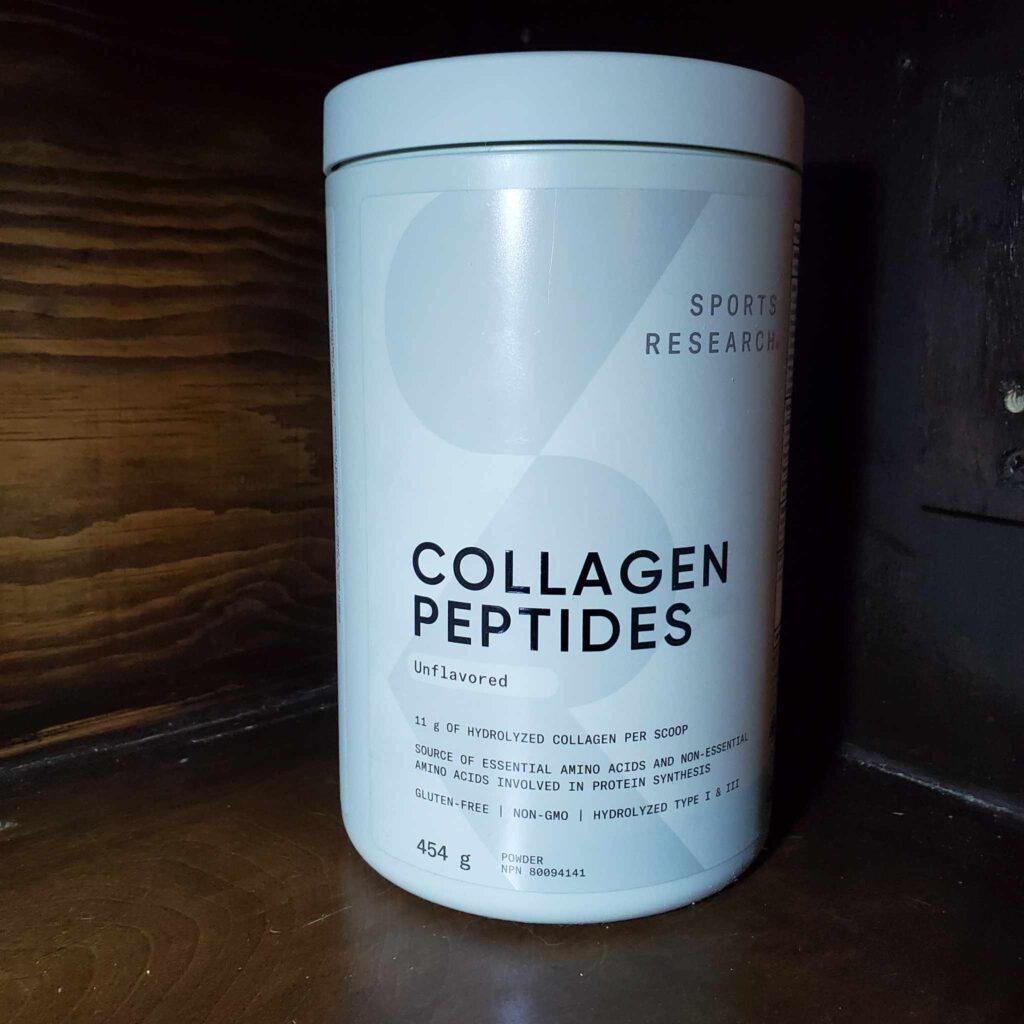(We are an Amazon Affiliate)
Top Ten Best Supplements for Athletic Performance – Unleash Your Full Potential
In a world where every hundredth of a second counts and where personal bests can be the difference between winning and losing, athletes are always seeking the next big thing to give them that extra edge. It’s here that the realm of supplementation steps in, offering a bountiful array of nutrients purportedly designed to push the human body’s limits.
This isn’t about shortcuts or cheating; it’s about maximizing our body’s potential within the realms of healthy living and performance enhancement. For health-conscious individuals and passionate athletes alike, the ethos of supplementation is to support, enhance, and optimize training and recovery.
In this comprehensive deep dive, we explore the top ten supplements that have been meticulously researched and endorsed by fitness professionals and athletes across the globe. Whether you’re a competitive athlete on the quest for gold, a weekend warrior aiming to improve personal performance, or simply one who is conscious about maintaining a fit and robust body, these supplements can be your allies in the pursuit of excellence.
1. Protein – The Building Blocks of All Workout Goals
Protein is the quintessential nutrient for muscle growth and recovery. It’s the foundation of any athlete’s supplementation regimen. From whey and casein to plant-based sources such as pea and hemp, protein supplements aid in maintaining and building lean muscle mass, especially in the periods pre- and post-exercise. For strength and power athletes, a protein intake of around 1.4-2.0 grams per kilogram of body weight is generally recommended to enhance muscle recovery and improve training adaptations.

Get it here:https://amzn.to/3T92huY
And in the USA:https://amzn.to/48RNetM
The Protein Powerhouses:
- Whey Protein Isolate for its fast absorption rate
- Casein Protein for its slow-digesting properties
- Plant-based Proteins like Pea or Hemp for a full, vegetarian amino acid profile
2. Caffeine – The Elixir for Energy and Focus




A natural stimulant, caffeine has a well-documented role in athletic performance. It can delay the onset of fatigue, enhance mental focus, and improve physical strength and endurance. Studies have shown that caffeine can benefit various types of exercise, including endurance activities and high-intensity, short-duration ones.
Check the price here:https://amzn.to/46jUCgO
And in the USA:https://amzn.to/438YnoK
The Caffeine Kick:
- Anhydrous Caffeine for a concentrated dose
- Natural Sources like green tea for a milder, sustained release
3. Vitamin D – The Sunshine Supplement for Bone Health



Dubbed the “sunshine vitamin”, Vitamin D is crucial for maintaining healthy bones and muscles. It plays a significant role in calcium and phosphorus metabolism required for bone health and muscle function. Deficiency in Vitamin D can lead to muscle weakness and increased risk of bone injuries in athletes.
Get yours here:https://amzn.to/3vaH7Ty
And in Canada:https://amzn.to/3TtixXt
Dose of Vitamin D:
- Vitamin D3 Supplements for optimum bioavailability
- Natural sunlight exposure when available
4. Vitamin B – The Energy Vitamin

The B vitamins are essential for energy metabolism, meaning they help your body convert food into fuel. Athletes require greater amounts of these vitamins to aid in aerobic and anaerobic energy production. Vitamin B supplementation can help with energy levels and supporting the body’s ability to repair itself.
Check it out:https://amzn.to/3PeVBbZ
And in Canada:https://amzn.to/3T8jy64
Unlocking the Potent Health Benefits of Vitamin B
In the world of nutrition, vitamin B holds the spotlight due to its diverse benefits for overall health and wellbeing. Comprising a group of eight essential nutrients, the B vitamins play pivotal roles in everything from energy production to brain health and red blood cell formulation. However, despite their known importance, deficiencies in B vitamins are surprisingly common. This extensive guide dives into the specifics of each B vitamin, unpacking their individual strengths and the collective power they hold over our health, helping you to bolster your B vitamin intake for a resilient and vibrant life.
The Role of Vitamin B in Health and Wellness
Understanding the significance of B vitamins in our health is the first step towards appreciating their indispensable role. Often referred to as the “anti-stress” vitamins, they are water-soluble and not stored in the body for long periods, necessitating consistent intake for optimal function. Here, we’ll discuss how the B vitamins are not just for combating stress but also for maintaining skeletal muscle tone, promoting good vision, and even aiding in the synthesis of DNA.
The Power of the B Vitamins
The B vitamins are workhorses in the body, contributing to numerous biological processes. From the role of Vitamin B6 in neurotransmitter synthesis to Vitamin B12’s contribution to myelin formation, each member of the B family has a unique set of responsibilities, highlighting their synergistic nature and individual prowess.
Sources and Recommended Intake
A balanced diet is essential for supplementing B vitamins, as they are found in a variety of foods, predominantly enriched grains, dairy products, meat, and leafy green vegetables. But what does this look like on the plate? We detail the recommended dietary allowances for each B vitamin and provide practical advice on how to meet these targets through everyday meals.
Navigating the B Vitamin Spectrum
Each B vitamin is an unsung hero, with its own tale of efficacy and necessity. From thiamine’s (B1) support for carbohydrate metabolism to riboflavin’s (B2) assistance in transporting oxygen throughout the body, this section is a deep-dive into the individual nobility of those vitamins.
Vitamin B1 (Thiamine)
Thiamine stands at the crux of our energy pathways and plays an integral part in nerve function. Delving into the roles of thiamine, including its contribution towards the development and operation of our brain cells and the nervous system.
Vitamin B2 (Riboflavin)
Riboflavin is a catalyst for numerous metabolic reactions, notably involved in energy production, cellular function, and the metabolism of fats and medications. We explore the critical functions of riboflavin and the potential consequences of a deficiency.
Vitamin B3 (Niacin)
Niacin is pivotal for cardiovascular health, yet its benefits extend to the digestive and nervous systems. Learn more about how niacin can assist in modulating cholesterol and keeping the nervous system steady.
Vitamin B5 (Pantothenic Acid)
Pantothenic acid, or Vitamin B5, is essential for synthesizing coenzyme A, which is crucial for the body’s energy production. We unravel the lesser-known attributes of B5 and its influence on hormone and neurotransmitter synthesis.
Vitamin B6 (Pyridoxine)
Vitamin B6 is one of the most versatile B vitamins, with roles in over 100 enzyme reactions in the body, including the metabolism of amino acids and the formation of red blood cells. This section outlines the roles of B6, particularly its involvement in brain development and immune function.
Vitamin B7 (Biotin)
Biotin is renowned for promoting healthy skin, nails, and hair, but its benefits extend to the support of metabolic function and cell growth. Demystifying the beauty and metabolic benefits of biotin and the consequences of biotin deficiency.
Vitamin B9 (Folate)
Folate is vital for supporting the body’s cell division and growth and is especially renowned for its role in preventing neural tube defects during pregnancy. We dissect the importance of folate in prenatal nutrition, as well as its implications for heart health and red blood cell formation beyond pregnancy.
Vitamin B12 (Cobalamin)
Vitamin B12 is a powerhouse for energy, mental acuity, and nerve health. With its prevalence in animal-based foods, B12 raises questions for vegans and vegetarians. This section addresses the critical role of B12 for different age groups and lifestyles and how to ensure an adequate intake, even without meat or dairy.








Fortifying Your Health Against B Vitamin Deficiencies
Despite the accessibility of B vitamins in many foods, deficiencies can occur due to various factors such as poor dietary choices, alcohol consumption, or underlying health issues. We explore the signs and symptoms of B vitamin deficiencies and how to address them to restore health and prevent future imbalances.
Recognizing Deficiencies
B vitamin deficiencies often manifest in subtle but significant ways, from fatigue and depression to anemia and impaired cognitive function. This segment aims to empower readers with the knowledge to identify these telltale signs in themselves or others, ensuring timely intervention.
Addressing B Vitamin Deficiencies
If a deficiency is suspected, what steps can be taken to correct it? We provide a detailed plan that involves dietary adjustments, supplementation, and, if necessary, the advice of a healthcare professional to address and overcome B vitamin deficiencies.
Top Foods Rich in B Vitamins
Discover the pantry staples and culinary delights that can help you fulfill your B vitamin needs deliciously and nutritively. From fortified cereals to organ meats, this section is a smorgasbord of ideas to reinvigorate your meals with B vitamin-rich ingredients and recipes.
Incorporating B Vitamins Into Your Diet
Practical tips are shared to demonstrate how simple it is to weave B vitamin-rich foods into one’s diet. Lazy Sunday brunches, quick lunchbox fixes, and gourmet dinners can all be laced with B vitamin goodness — all it takes is a little know-how and creativity.
Delicious Recipes to Boost Your B Vitamin Intake
From a flavorful lentil and spinach stew that ticks the folate box to a succulent salmon dish that’s brimming with B12, we offer mouthwatering recipes that could easily become staples in your home kitchen, elevating both flavor and nutrition.
Conclusion: Making B Vitamins Your Allies in Health
In wrapping up, this extensive exploration of the B vitamins serves as a roadmap to optimum health and vitality. By honing in on the individual attributes and collective clout of B vitamins, and empowering readers with practical tips and insights, the aim is to carve out a path towards a more informed and fortified lifestyle. From recognizing the signs of deficiency to tailor-making your own B vitamin-rich recipes, the possibilities are as nourishing as they are endless. With this trove of information, you can now stand armed with the knowledge to make B vitamins not just a part of your diet, but a part of your health philosophy.
The B Combo:
- B-Complex Supplements to cover the full range of B vitamins
- Sports nutrition products fortified with B vitamins
5. Maca – The Peruvian Power Plant



Maca is an adaptogenic plant native to the Andes mountains of Peru. It is reputed to support energy production, hormonal balance, and endurance. Athletes use maca supplements to enhance stamina during their workouts and to regulate the body’s stress response.
Get it right here:https://amzn.to/3v3K2NR
AND in Canada:https://amzn.to/49Maafj
The Power of Maca: Unveiling the Health Benefits of This Ancient Superfood
In the bustling world of health and wellness, superfoods often take the stage, but among them, Maca root stands as a celebrated star. With an ancient legacy of being used for its medicinal properties in the Andes Mountains, Maca is thriving in modern health trends. If you’re looking to boost your wellness regimen, enhance endurance, or simply curious about natural ways to promote health, it’s time to unravel the mysteries of Maca. In this comprehensive guide, we’ll explore the extensive list of benefits this root vegetable is known for and why it’s becoming a staple for health enthusiasts worldwide.
Here’s what we’ll cover in this in-depth exploration:
Understanding Maca: An Overview
Maca, scientifically known as Lepidium meyenii, is a cruciferous vegetable that’s been part of traditional Peruvian medicine and cuisine for thousands of years. Growing in the harsh conditions of the Andes, its resilience in the face of such extreme weather is a testament to its nutritional robustness. It’s often found in various forms, the most popular being powder, which can be easily incorporated into foods and beverages.
Historically, Maca was revered for its ability to enhance fertility and energize the body. It was a staple in the diets of ancient Incan warriors, who purportedly consumed Maca to increase strength and endurance. Nowadays, athletes and fitness enthusiasts turn to Maca for similar reasons, alongside a growing array of health-conscious individuals keen on harnessing its nutritional prowess.
Maca and Hormonal Harmony
One of the most celebrated benefits of Maca is its potential to balance hormones. Many studies and anecdotal reports have suggested Maca’s role in reducing menopausal symptoms and improving sexual function. For women, in particular, Maca may help alleviate discomfort associated with menstruation and menopause, and potentially enhance fertility.
Maca is an adaptogen, which means it can adapt to the body’s specific needs. When it comes to hormone regulation, it’s believed that Maca can influence the hypothalamus and pituitary glands – both of which are involved in hormone production. By maintaining a state of equilibrium, Maca may be able to combat the effects of stress-induced hormonal imbalances that can lead to various health issues.
A wealth of evidence also suggests that Maca can increase libido in both men and women, often attributed to its impact on reducing anxiety and depression, common inhibitors of sexual desire.
A Shot of Energy, the Maca Way
The ability of Maca to enhance energy levels without overstimulating is a prime reason it’s being touted by many as a natural alternative to caffeine. Due to its rich vitamins, minerals, and fatty acids, Maca can offer a slow-burning source of fuel that can increase stamina and endurance over time.
For those who struggle with chronic fatigue or need an extra push during intense workouts, incorporating Maca into your diet could be the answer. This energy boost is not only physical but also extends to cognitive functions, helping to improve focus and mental clarity.
Fortifying Wellness with Maca
Beyond hormonal and energy benefits, Maca is a nutritional powerhouse. It contains a variety of amino acids, vitamins, and minerals, including vitamin C, copper, iron, and potassium. This unique profile can bolster the immune system and support bone health, making it a worthy addition to your preventive healthcare routine.
Maca’s adaptogenic properties also help the body adapt to stress – whether it’s environmental, emotional, or physical. This adaptability can ease feelings of fatigue, enhance resilience, and ultimately, fortify overall wellness.
How to Incorporate Maca into Your Diet
Maca has a nutty, earthy flavor profile that pairs well with a variety of foods. It’s available in powder, capsule, or liquid form, and can be added to smoothies, juices, coffee, or baked goods.
To make the most of Maca’s benefits, it’s recommended to add about a teaspoon (or roughly 5 grams) of Maca powder to your daily diet. However, it’s essential to proceed with caution and gradually increase your intake, as with any new supplement or superfood.
Maca Recipes to Supercharge Your Day
Maca Morning Smoothie
Combine a frozen banana, a handful of spinach, a tablespoon of peanut butter, a teaspoon of Maca powder, and your milk of choice in a blender. Blend until smooth for a tropical, energizing start to your day.
No-Bake Maca Energy Bites
Mix 1 cup of rolled oats, 1/2 cup of nut butter, 1/3 cup of honey or maple syrup, 2 tablespoons of chia seeds, and 2 teaspoons of Maca powder. Roll into bite-sized balls and refrigerate for a quick on-the-go snack.
Understanding Varieties and Dosages of Maca
There are various types of Maca available, each with its unique properties and benefits. These include:
- Red Maca: Known for its ability to enhance bone density and memory, it may also benefit prostate health in men.
- Black Maca: Traditionally used to boost fertility, black Maca is thought to promote sperm production and an increase in sexual desire.
- Yellow Maca: The most common and widely researched type, yellow Maca is known for its energy-boosting and hormone-balancing effects.
When it comes to dosage, it’s best to start with small amounts and gradually increase. A common starting point is 500-1000 mg per day, and you can adjust based on your body’s response.
Precautions and Possible Side Effects of Maca Consumption
While Maca is generally considered safe for most people, there are a few considerations to keep in mind:
- Hormone-Sensitive Conditions: If you have conditions such as breast cancer, uterine cancer, ovarian cancer, endometriosis, or uterine fibroids, it’s best to consult your healthcare provider before using Maca, as it may affect hormone levels.
- Thyroid Conditions: Some sources suggest Maca might interfere with thyroid function. If you have a thyroid condition or are on thyroid medication, speak with your doctor before using Maca.
- Digestive Distress: Like many high-fiber foods, Maca can cause digestive upset in some individuals. It’s wise to start with a small amount and gradually increase as tolerated.
- Pregnancy and Breastfeeding: While there are not enough studies to confirm the safety of Maca during these times, it’s best to err on the side of caution and avoid its use unless approved by a healthcare professional.
In conclusion, Maca is a versatile and potent superfood with a rich history and a promising future. Whether you’re seeking to balance your hormones, supercharge your energy levels, or simply boost your overall health, Maca offers a natural and effective solution. By understanding its benefits, taking the right dose, and heeding necessary precautions, you can harness the power of Maca to enhance your well-being and unlock your full potential.
The Maca Magic:
- Gelatinized Maca for easier digestion and absorption
- Blends with other adaptogenic herbs like Rhodiola for synergistic effects
6. Creatine – The Master of Muscular Strength
Creatine is one of the most popular and effective supplements for improving high-intensity exercise performance. It works by increasing the body’s store of phosphocreatine, which is then used to produce more ATP, the ‘energy currency’ of our cells. This effectively can lead to increased strength, power, and muscle gains.
Check the price here:https://amzn.to/3vaNmGY
And in Canada:https://amzn.to/4a86zb5
Unearthing the Power of Creatine: Your Ally in the Pursuit of Physical Excellence

In the quest for performance enhancement, creatine stands out as a perennial favorite in the arsenal of fitness aficionados, bodybuilders, and athletes. Its extensive track record in scientific literature and the field has cemented it as a staple, up there with protein powders and caffeine, for good reason. The benefits of creatine aren’t confined to muscle-bound gym enthusiasts but extend to a diverse range of fitness endeavors.
In this all-inclusive exploration, we unpack the myriad ways creatine can revolutionize your fitness journey, dispel common misconceptions, and look into the future of creatine research.
The Essential Primer on Creatine
Before we plunge into the benefits, it’s crucial to establish a foundational understanding of creatine and its physiological roles. Creatine isn’t a lab-formulated stimulant but a natural compound that the body either synthesizes from amino acids (arginine, glycine, and methionine) or procures through dietary sources.
Its primary function in the human body is to support the production of adenosine triphosphate (ATP), the universal energy currency. By bolstering ATP levels, creatine equips muscles with the vigor necessary for high-intensity activities, such as weightlifting and sprinting.
The Science Behind Creatine Loading and Cycling
One of the most debated tactics in creatine supplementation is the practice of ‘loading’ – an initial phase consuming around 20g of creatine per day (in divided doses) for about a week to saturate the muscles’ stores, followed by a ‘maintenance’ phase of 3-5g daily. And then there’s the idea of ‘cycling’ on and off creatine, purportedly to maintain the body’s sensitivity to the supplement.
Exploring the scientific consensus and the practical implications of these methods can guide users to the most advantageous supplementation strategies.
Building Muscle with Creatine
Creatine’s muscle-building prowess is well-documented. By supercharging ATP synthesis, it enhances performance in short-duration, high-intensity bouts, which translates to more reps, higher workload, and greater muscle fiber recruitment. Furthermore, creatine draws water into muscle cells, a phenomenon termed ‘cell volumization’, which may contribute to the ‘full’ appearance sought after by many bodybuilders.

Bridging the Strength and Endurance Divide
For those looking to bridge the divide between strength and endurance, creatine offers a unique advantage. While traditional beliefs might pigeonhole creatine as beneficial only for weightlifters, its ability to augment anaerobic capacity can also benefit endurance athletes such as runners and swimmers.
Exploring Cognitive and Brain Health Benefits
Beyond the brawn, creatine flexes its neural muscle, so to speak, with implications for cognitive function and brain health. Studies have demonstrated its potential for improving short-term memory and cognitive processing in situations of mental fatigue. In the realm of brain health, creatine’s role in supporting healthy mitochondria function and potentially acting as a neuroprotective agent makes it an area of burgeoning research for conditions such as traumatic brain injury and neurodegenerative diseases.
Creatine in the Fight Against Age-Related Decline
The physiological implications of aging can lead to a reduction in creatine stores in the brain, coinciding with changes in cognitive performance. This has sparked interest in creatine’s role in combatting age-related cognitive decline and its potential to serve as an adjunct therapy for conditions like Parkinson’s and Alzheimer’s.
Contributing to Enhanced Sports Performance
For competitive athletes, even marginal gains can spell the difference between victory and defeat. Creatine supplementation has been associated with improvements in numerous athletic domains, from acceleration in sprinters to shot-put performance.
The Impact on Hydration and Thermoregulation
A lesser-known effect of creatine is its ability to enhance thermoregulation and support hydration at a cellular level. These traits make it a valuable asset, particularly for athletes competing in hot and humid conditions, where maintaining optimal body temperature and fluid balance are critical.
Debunking Common Myths Surrounding Creatine
Despite the scientific support for creatine’s efficacy and safety, myths and misconceptions continue to surface, deterring some individuals from harnessing its benefits.
Creatine and Kidney Function
Perhaps the most pervasive concern is the unfounded association between creatine and kidney damage. By examining the existing body of research, we can alleviate these worries and affirm that, when used within recommended dosages, creatine is safe for the kidneys.
The Rumors about Water Retention and Cramping
Associations with water retention and muscle cramping have not stood the test of rigorous scientific scrutiny. In fact, when adequate hydration accompanies creatine supplementation, the incidence of cramping has been found to decrease.
Future Directions in Creatine Research
The body of knowledge on creatine is far from static. Ongoing research continues to uncover new applications, optimal dosages, and potential synergies with other supplements.
Examining Gender-Specific Benefits
While much of the current literature focuses on male subjects, there is a growing interest in investigating creatine’s effects on females. Understanding how gender influences creatine metabolism and its consequent benefits will lead to more tailored recommendations for women.
The Genetic Dimension of Creatine Responsiveness
Emerging evidence suggests that genetic variation may play a role in an individual’s response to creatine supplementation. With the advent of personalized medicine, could genotype assessments dictate more effective and customized creatine regimens?
Maximizing the Impact of Creatine Supplementation
Taking creatine is more than a case of “pop a pill and pray for gains.” The integration of creatine into an overarching health and training strategy is key to reaping its full rewards.
Pairing Creatine with Appropriate Nutrition and Training
Synergies exist when creatine is combined with the right nutrition and training programs. We illuminate how these three pillars can reinforce each other, leading to a comprehensive approach to reaching your fitness goals.
The Timings and Types of Creatine — What Works Best?
The supplement market is saturated with various forms of creatine, from monohydrate to phosphate and beyond. We decipher the distinctions and guide you towards the formulations that have proven most effective.
Crafting a Post-Supplementation Recovery Plan
Optimizing recovery is a critical, often overlooked component in any supplementation protocol. We discuss the importance of rest, nutrition, and other recovery modalities in ensuring that the gains facilitated by creatine are not just made, but cemented.

The Role of Sleep and Stress in Recovery
Sleep and stress management are as much a part of the fitness puzzle as workouts and supplements. We highlight the crucial interplay between these factors and how they can have a multiplier effect on your creatine-powered endeavors.
Conclusion: Creatine — An Indispensable Comrade
Creatine has withstood the tests of time and scrutiny, emerging as a tried-and-tested aid in the multifaceted domain of health and fitness. Its diverse benefits extend to muscle growth and performance, cognitive augmentation, and possibly even longevity. Although creatine is not a magic bullet, when wielded wisely and in conjunction with a comprehensive approach to wellness, its role can be pivotal in actualizing your fitness aspirations.
By educating yourself on the science, dispelling myths, and fine-tuning application methods, you can harness the full potential of creatine as a trusted ally in your relentless pursuit of physical excellence. The exploration is far from over, and the pages of creatine’s story continue to be written — eagerly awaiting the imprint of your personal fitness odyssey.
The Creatine Charge:
- Creatine Monohydrate, the most researched form with no-nonsense effectiveness
- Micronized Creatine for better solubility
7. Ashwagandha – The Ayurvedic Adaptogen



Used in traditional Ayurvedic medicine for thousands of years, Ashwagandha can help the body manage stress more effectively. Studies have begun to suggest that Ashwagandha supplementation may improve muscle strength and recovery, making it increasingly popular among athletes.
The Ashwagandha Advantage:
- KSM-66 Ashwagandha, a patented and clinically backed form
- Sensoril Ashwagandha offers a blend focused on cortisol management
8. Lion’s Mane – The Brain Booster




While not directly focused on physical performance, a clear and sharp mind is essential for training and competition. Lion’s Mane mushroom has been gaining traction for its potential to enhance cognitive function, including concentration and memory. Also, certain studies suggest it could hasten recovery from cognitive fatigue.
Get it right here:https://amzn.to/3uW37Si
And in Canada:https://amzn.to/3PjiCKP
The Lion’s Mane Leap:
- Dual-extracted Lion’s Mane for a full spectrum of benefits
- Lion’s Mane coffee for a morning mental boost
9. Collagen – The Support Structure Supplement

Collagen is the most abundant protein in the human body and is critical for connective tissue, skin, and joint health. In the context of athletic performance, collagen supplements can contribute to the integrity of our cartilage, tendons, and ligaments, aiding in injury prevention and recovery.
Check the price here:https://amzn.to/3Ivoz3x
And in the USA:https://amzn.to/48Nflu7
The Collagen Connection:
- Hydrolyzed Collagen Peptides for easier digestion and absorption
- Collagen supplements with added Vitamin C, which is necessary for collagen synthesis
10. BCAA – The Amino Acid Arsenal




Branch-Chain Amino Acids (BCAAs) – leucine, isoleucine, and valine – are the building blocks of proteins. Aiding in reducing muscle soreness, enhancing muscle growth, and improving exercise performance and recovery, BCAA supplements are often used by athletes engaged in high-intensity training.
The BCAA Blueprint:
- 2:1:1 Ratio Supplements, which mimic the body’s natural BCAA composition
- BCAA blends with additional ingredients like glutamine for a comprehensive recovery profile
Conclusion – Balancing the Supplement Scale
In the realm of athletic performance, supplements serve as a tool kit crafted to support the body’s pursuit of greater fitness and functionality. While these supplements offer various advantages, it is critical to remember that they should be balanced with a wholesome diet, adequate hydration, and sufficient rest. Each athlete’s needs are unique, and it is always advisable to consult a healthcare professional or a sports nutritionist before incorporating new supplements into your routine.
Furthermore, the key to unlocking the true potential of these supplements lies not in their sole use, but in the orchestration of a holistic approach to training, recovery, and nutrition. When combined with a comprehensive and disciplined regime, these supplements can assist in elevating your performance to new heights. Remember, the supplements you choose are just that – they supplement the hard work, dedication, and passion that you bring to your sport.
